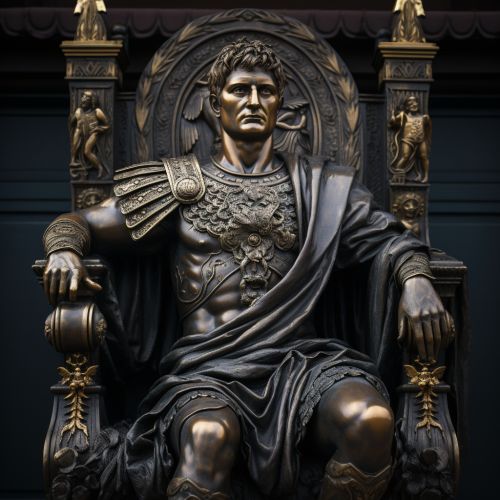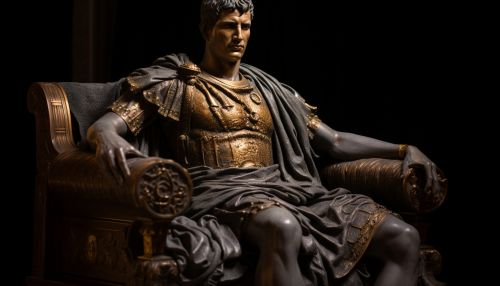Trajan
Early Life
Marcus Ulpius Traianus, known to us as Trajan, was born on September 18, 53 AD in the Roman province of Hispania Baetica, in the city of Italica. His father, also named Marcus Ulpius Traianus, was a prominent senator and general in the Roman army. His mother, Marcia, was from a noble family and was the daughter of the famous Roman senator, Marcus Annius Verus. Trajan's family was well-respected and influential, which provided him with a privileged upbringing and access to the best education available at the time.
Military Career
Trajan began his military career in the Roman army at a young age, following in the footsteps of his father. He served under the Emperor Domitian in the Germanic wars, where he distinguished himself as a capable and brave soldier. His success in the military earned him the attention of the Emperor Nerva, who adopted Trajan as his heir in 97 AD. This was a significant event, as it marked the first time a Roman Emperor had chosen his successor based on merit rather than familial ties.
Reign as Emperor
Upon the death of Nerva in 98 AD, Trajan ascended to the throne, becoming the 13th Emperor of Rome. His reign, which lasted from 98 AD to 117 AD, is often regarded as the high point of the Roman Empire. Trajan was known for his military successes, particularly his conquests in the East. He expanded the Roman Empire to its greatest territorial extent, incorporating the regions of Dacia, Armenia, Mesopotamia, and parts of Arabia into the Empire.


One of Trajan's most notable achievements was the construction of Trajan's Column, a monumental column erected in Rome to commemorate his victory in the Dacian Wars. The column, which still stands today, is adorned with a detailed relief that depicts the events of the wars in chronological order.
Trajan was also known for his public works projects and social welfare policies. He commissioned the construction of new roads, bridges, aqueducts, and buildings, including the famous Trajan's Market in Rome. He also implemented a social welfare program known as the "alimenta," which provided state-funded assistance to orphaned and impoverished children.
Death and Legacy
Trajan died on August 8, 117 AD, after a lengthy illness. He was succeeded by his adopted son, Hadrian. Trajan's death marked the end of the period of Roman history known as the "Five Good Emperors," a time of relative peace and prosperity in the Empire.
Trajan's legacy is one of military success, territorial expansion, and civic improvement. He is often regarded as one of Rome's greatest emperors, and his reign is seen as a high point in the history of the Roman Empire. His policies and public works projects had a lasting impact on the Empire, and his military conquests expanded Rome's influence in the East.
